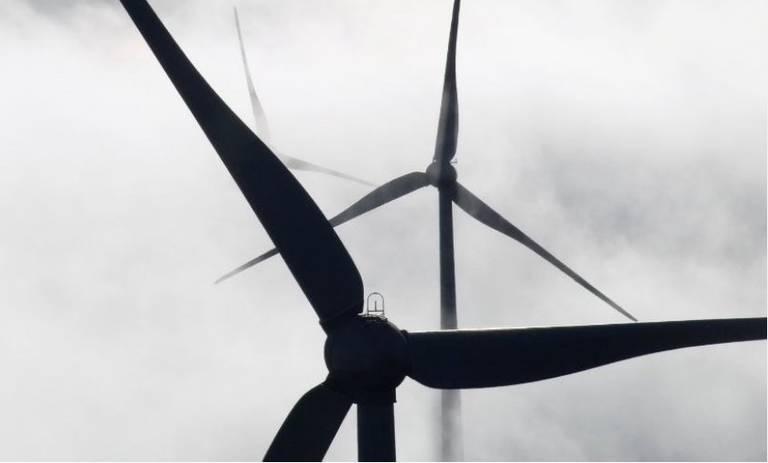
By Tom Idle
When the world’s biggest food business Nestlé signed a 15-year power purchase agreement (PPA) with a company called EDP Renewables last month, it was seen as a huge step forward for Nestlé’s ambition to buy 100% of its electricity from renewable sources.
EDP will supply 50MW of clean energy to run five of the company’s facilities across Pennsylvania thanks to a huge wind farm situated close enough to the manufacturing plants and distribution centers of Nestlé Purina PetCare, Nestlé USA and Nestlé Waters North America.
According to the company’s North American chief supply chain officer Kevin Petrie, the partnership “propels us forward in our ambition to create zero environmental impact by 2030, and is another example of our business transformation journey”. It also illustrates Nestlé’s strategy for creating shared value, boosting the economic bottom line while helping to create a healthier planet.
Similarly, the US home improvement store Home Depot is creating mini solar farms by using its rooftops at 50 of its stores. It’s a move that cuts grid demand by about 30-35% a year at each store thanks to a partnership deal with GE subsidiary Current and Tesla.
Nestlé and Home Depot are not the only companies getting excited about PPAs. In fact, last year, record numbers of corporations bought clean energy via such agreements.
According to data from Bloomberg New Energy Finance, companies around the world purchased 5.4 gigawatts of renewably produced power using long-term PPA deals, surpassing the previous record in 2015.
Driven by sustainability commitments and initiatives, as well as the fact that the cost of sourcing low-carbon energy is falling, 43 companies in ten different countries signed a PPA last year. It is fact even more significant given the policy uncertainty when it comes to supporting clean energy generation in Europe and the US.
Since 2008, companies have signed contracts to buy nearly 19GW of clean power – that’s the equivalent to the generation capacity of Portugal. And the majority (76%) of this has come since 2015.
Last year, US corporates signed PPAs for the most amount of power, totalling 2.8GW – up 19% on the year before. Apple’s 200MW PPA with NV Energy to buy electricity from the Techren Solar project was the biggest agreement of its kind ever to be signed in the US.
In Europe, aluminium manufacturer Norsk Hydro agreed to buy most of the electricity from the 650MW Markbygden Ett wind farm in Sweden, from 2021 to 2039, in what was the biggest deal.
There were also PPAs signed in Burkina Faso, Ghana, Panama and Thailand, among other emerging nations.
The popularity of PPAs is unsurprising. Essentially, the deals create an energy delivery agreement between business buyers and clean energy project developers that allows for a price to be locked in for up to 20 years – perfect when energy market prices remain volatile. PPAs protect companies from price variability and because many wind and solar plants need minimal maintenance once they have been installed, buyers benefit from steady, predictable costs that can be specified up front in a PPA contract.
The PPA mechanism helps those generating clean energy plants to join forces with a company that has made a long-term commitment to renewables. The company then pays the developer for bringing new sources of renewable energy to the grid, usually in exchange for renewable energy certificates (RECs) (also known as guarantees of origin (GO) in Europe).
As BNEF points out, PPA activity persists “despite a tumultuous political climate and cheap wholesale power”. It points to the yet-to-be-determined tariff expected to be placed on the import of PV modules, which could increase the cost of solar generation. “The lack of clarity on the severity of this tariff means developers cannot accurately price PPAs with corporations and other offtakers in the meantime,” says BNEF.
Meanwhile, in Europe, the EU Winter Package will see developers that receive renewable energy subsidies no longer eligible to receive certificates. Instead, they will have to acquire them through a mandatory auction.
“The growth in corporate procurement, despite political and economic barriers, demonstrates the importance of environmental, social and governance issues for companies,” says Kyle Harrison, a corporate energy strategy analyst for BNEF. “Sustainability and acting sustainably in many instances are even more important, for the largest corporate clean energy buyers around the world, than any savings made on the cost of electricity.”
As such, the analyst expects PPA activity to grow further this year with commitments made via initiatives such as the RE100 campaign set to make the financing mechanism too appealing to ignore.
Tom Idle is Principal, Narrative Matters.
Photo: EDP Renewables
TriplePundit has published articles from over 1000 contributors. If you'd like to be a guest author, please get in touch!














